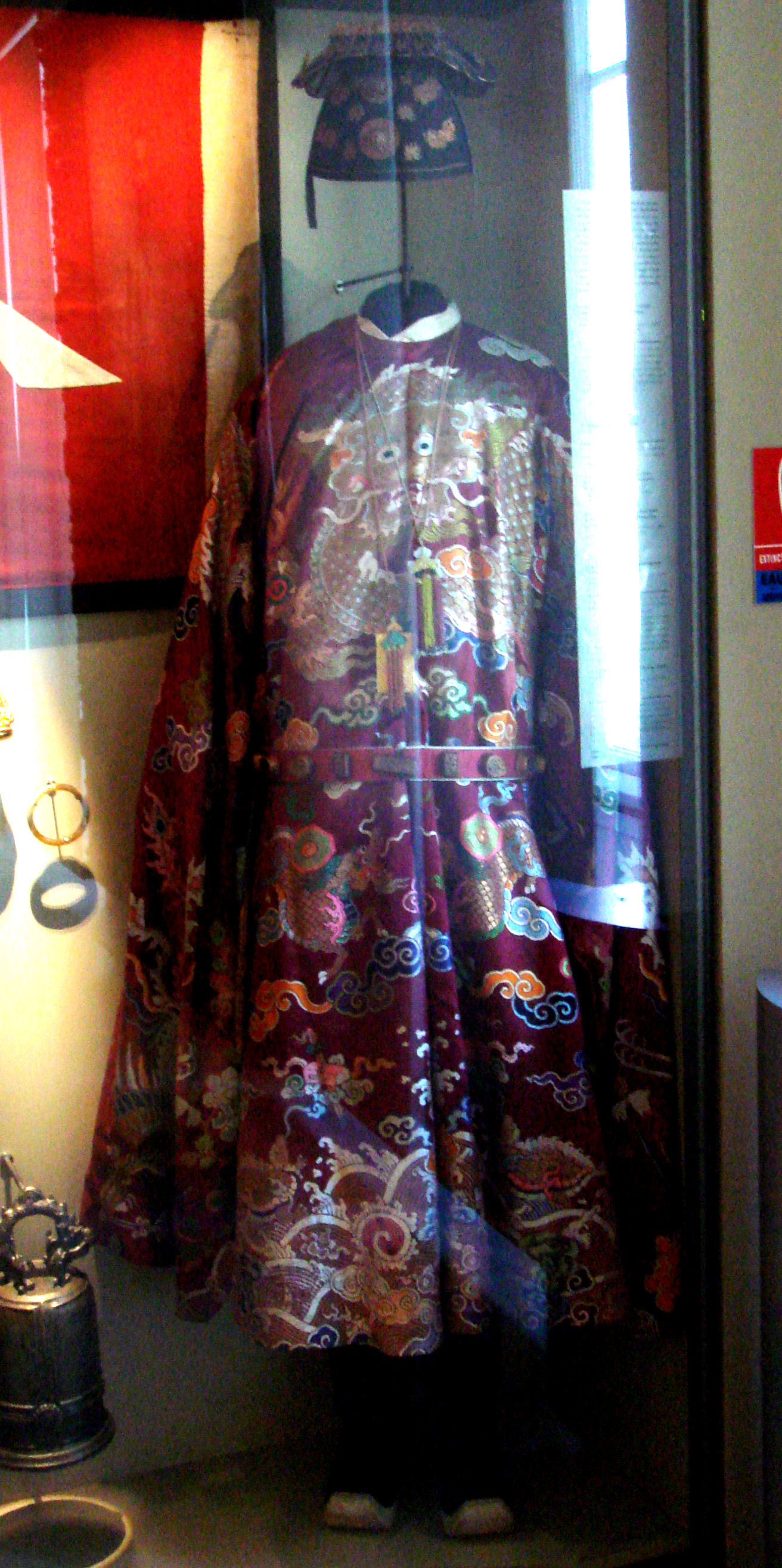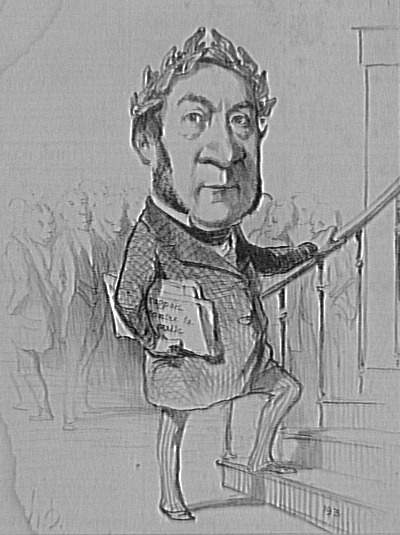|
Francis Garnier
Marie Joseph François Garnier ( vi, Ngạc Nhi; 25 July 1839 – 21 December 1873) was a French officer, inspector of Indigenous Affairs of Cochinchina and explorer. He eventually became mission leader of the Mekong Exploration Commission in 19th century Southeast Asia. Early career Francis Garnier was born on 25 July 1839 in Saint-Étienne, as the second son of Louis-Alexandre Garnier and Anne Marie Félicité Garnier. In 1855, at 16, he joined the Ecole Navale, much to the dismay of his family who disapproved a military career, deeming it as being dangerous. In early 1860, 20 years old Garnier, then serving as an aspirant on the ''Duperré'' during the Second Opium War, jumped into a stormy sea at night to save the life of a cavalry lieutenant who had fallen overboard. For this act of bravery, Garnier was immediately promoted to ensign and got attached to the staff of Admiral Charner. Under Admiral Charner he fought in the Cochinchina Campaign and notably took part in ... [...More Info...] [...Related Items...] OR: [Wikipedia] [Google] [Baidu] |
Battle Of Kỳ Hòa
The Battle of Kỳ Hòa (Vietnamese: Trận Đại đồn Chí Hòa) on 24 and 25 February 1861 was an important French victory in the Cochinchina campaign (1858–62). This campaign, fought between the French and the Spanish on the one side and the Vietnamese on the other, began as a limited punitive expedition and ended as a French war of conquest. The war concluded with the establishment of the French colony of Cochinchina, a development that inaugurated nearly a century of French colonial dominance in Vietnam. Background After early French victories at Tourane and Saigon, the Cochinchina campaign reached a point of equilibrium with the French and their Spanish allies besieged in Saigon, which had been captured by a Franco-Spanish expedition under the command of Admiral Charles Rigault de Genouilly on 17 February 1859. The arrival of massive reinforcements from the French expeditionary corps in China in 1860 allowed the French to break the Siege of Saigon and regain the initi ... [...More Info...] [...Related Items...] OR: [Wikipedia] [Google] [Baidu] |
Cambodia
Cambodia (; also Kampuchea ; km, កម្ពុជា, UNGEGN: ), officially the Kingdom of Cambodia, is a country located in the southern portion of the Indochinese Peninsula in Southeast Asia, spanning an area of , bordered by Thailand to the northwest, Laos to the north, Vietnam to the east, and the Gulf of Thailand to the southwest. The capital and largest city is Phnom Penh. The sovereign state of Cambodia has a population of over 17 million. Buddhism is enshrined in the constitution as the official state religion, and is practised by more than 97% of the population. Cambodia's minority groups include Vietnamese, Chinese, Chams and 30 hill tribes. Cambodia has a tropical monsoon climate of two seasons, and the country is made up of a central floodplain around the Tonlé Sap lake and Mekong Delta, surrounded by mountainous regions. The capital and largest city is Phnom Penh, the political, economic and cultural centre of Cambodia. The kingdom is an e ... [...More Info...] [...Related Items...] OR: [Wikipedia] [Google] [Baidu] |
Kratié (city)
Kratié (also transliterated Kracheh) may refer to: * Kratié (town), a town in Kratié Commune, Cambodia * Kratié Commune, a commune in Kratié District, Cambodia * Kratié District, a district in Kratié Province, Cambodia * Kratié Province, a province in Cambodia {{geodis th:จังหวัดกระแจะ ... [...More Info...] [...Related Items...] OR: [Wikipedia] [Google] [Baidu] |
Royal Geographical Society
The Royal Geographical Society (with the Institute of British Geographers), often shortened to RGS, is a learned society and professional body for geography based in the United Kingdom. Founded in 1830 for the advancement of geographical sciences, the Society has 16,000 members, with its work reaching the public through publications, research groups and lectures. The Society was founded in 1830 under the name ''Geographical Society of London'' as an institution to promote the 'advancement of geographical science'. It later absorbed the older African Association, which had been founded by Sir Joseph Banks in 1788, as well as the Raleigh Club and the Palestine Association. In 1995 it merged with the Institute of British Geographers, a body for academic geographers, to officially become the Royal Geographical Society ''with IBG''. The society is governed by its Council, which is chaired by the Society's President, according to a set of statutes and standing orders. The member ... [...More Info...] [...Related Items...] OR: [Wikipedia] [Google] [Baidu] |
Patron's Medal
The Royal Geographical Society's Gold Medal consists of two separate awards: the Founder's Medal 1830 and the Patron's Medal 1838. Together they form the most prestigious of the society's awards. They are given for "the encouragement and promotion of geographical science and discovery." Royal approval is required before an award can be made. The awards originated as an annual gift of fifty guineas from King William IV, first made in 1831, "to constitute a premium for the encouragement and promotion of geographical science and discovery." The Royal Geographical Society decided in 1839 to change this monetary award into the two gold medals. Prior to 1902 the Patron's Medal was alternatively known as the "Victoria Medal". Recipients include David Livingstone in 1855, Mary Somerville in 1869, Nain Singh Rawat in 1877, Ferdinand von Richthofen in 1878, Alfred Russel Wallace in 1892 and William Woodville Rockhill in 1893, to more recent winners including William Morris Davis in 19 ... [...More Info...] [...Related Items...] OR: [Wikipedia] [Google] [Baidu] |
Roderick Murchison
Sir Roderick Impey Murchison, 1st Baronet, (19 February 1792 – 22 October 1871) was a Scottish geologist who served as director-general of the British Geological Survey from 1855 until his death in 1871. He is noted for investigating and describing the Silurian, Devonian and Permian systems. Early life and work Murchison was born at Tarradale House, Muir of Ord, Ross-shire, the son of Barbara and Kenneth Murchison. His wealthy father died in 1796, when Roderick was four years old, and he was sent to Durham School three years later, and then the Royal Military College, Great Marlow to be trained for the army. In 1808 he landed with Wellesley in Portugal, and was present at the actions of Roliça and Vimeiro in the Peninsular War as an ensign in the 36th Regt of Foot. Subsequently under Sir John Moore, he took part in the retreat to Corunna and the final battle there. After eight years of service Murchison left the army, and married Charlotte Hugonin (1788–1869 ... [...More Info...] [...Related Items...] OR: [Wikipedia] [Google] [Baidu] |
Ernest Doudard De Lagrée
Ernest is a given name derived from Germanic word ''ernst'', meaning "serious". Notable people and fictional characters with the name include: People * Archduke Ernest of Austria (1553–1595), son of Maximilian II, Holy Roman Emperor * Ernest, Margrave of Austria (1027–1075) *Ernest, Duke of Bavaria (1373–1438) * Ernest, Duke of Opava (c. 1415–1464) *Ernest, Margrave of Baden-Durlach (1482–1553) *Ernest, Landgrave of Hesse-Rheinfels (1623–1693) *Ernest Augustus, Elector of Brunswick-Lüneburg (1629–1698) *Ernest, Count of Stolberg-Ilsenburg (1650–1710) * Ernest Augustus, King of Hanover (1771–1851), son of King George III of Great Britain *Ernest II, Duke of Saxe-Coburg and Gotha (1818–1893), sovereign duke of the Duchy of Saxe-Coburg and Gotha *Ernest Augustus, Crown Prince of Hanover (1845–1923) *Ernest, Landgrave of Hesse-Philippsthal (1846–1925) *Ernest Augustus, Prince of Hanover (1914–1987) *Prince Ernst August of Hanover (born 1954) * Prince Erns ... [...More Info...] [...Related Items...] OR: [Wikipedia] [Google] [Baidu] |
Mekong River
The Mekong or Mekong River is a trans-boundary river in East Asia and Southeast Asia. It is the world's twelfth longest river and the third longest in Asia. Its estimated length is , and it drains an area of , discharging of water annually. From the Tibetan Plateau the river runs through China, Myanmar, Laos, Thailand, Cambodia, and Vietnam. The extreme seasonal variations in flow and the presence of rapids and waterfalls in the Mekong make navigation difficult. Even so, the river is a major trade route between western China and Southeast Asia. Names The Mekong was originally called ''Mae Nam Khong'' from a contracted form of Tai shortened to ''Mae Khong''. In Thai and Lao, ''Mae Nam'' ("Mother of Water ) is used for large rivers and ''Khong'' is the proper name referred to as "River Khong". However, ''Khong'' is an archaic word meaning "river", loaned from Austroasiatic languages, such as Vietnamese ''sông'' (from *''krong'') and Mon ''kruŋ'' "river", which led to Ch ... [...More Info...] [...Related Items...] OR: [Wikipedia] [Google] [Baidu] |
Prosper, Marquis De Chasseloup-Laubat
Justin Napoléon Samuel Prosper de Chasseloup-Laubat, 4th Marquis of Chasseloup-Laubat (29 May 1805, Alessandria, Department of Marengo, French Empire – 29 March 1873, Paris, France) was a French aristocrat and politician who became Minister of the Navy under Napoleon III and was an early advocate of French colonialism. Early life and family Chasseloup-Laubat was the descendant of a minor noble family from Saintonge whose members were Huguenot but converted to Catholicism in the 17th century. He was the youngest son of the General François de Chasseloup-Laubat, 1st Marquis of Chasseloup-Laubat (1754-1833), and of his wife Anne-Julie Fresneau de La Gataudière, granddaughter of François Fresneau de La Gataudière who had discovered the properties of rubber. His godparents were Emperor Napoleon I and his first wife Empress Josephine. His brother, Justin (1800-1847), 2nd Marquis of Chasseloup-Laubat, was a military and politician and died as he was serving as French ambassa ... [...More Info...] [...Related Items...] OR: [Wikipedia] [Google] [Baidu] |
Commission At Angkor Wat
Commission or commissioning may refer to: Business and contracting * Commission (remuneration), a form of payment to an agent for services rendered ** Commission (art), the purchase or the creation of a piece of art most often on behalf of another * A contract for performance or creation of a specific work * Commissioning, a process or service provided to validate the completeness and accuracy of a project or venture: ** Building commissioning, a quality assurance process during and following building construction ** Project commissioning, a process of assuring that all components of a facility are designed, installed, tested, operated, and maintained according to the requirements of the owner or client Government Civil * A government agency, regulatory agency or statutory authority which operates under the authority of a board of commissioners, including: ** Independent agencies of the United States government *An executive branch of government, often with characteristics of ... [...More Info...] [...Related Items...] OR: [Wikipedia] [Google] [Baidu] |





